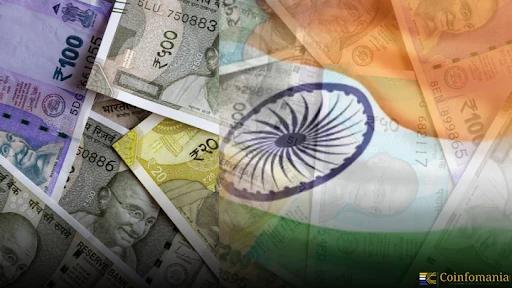Crypto Taxation in Vietnam: A Complete Guide
Vietnam hums with excitement as a hotspot for cryptocurrency, where a large population is investing in the world of Bitcoin, Ethereum, and other cryptocurrencies. A major population uses it for its swift, smooth way of juggling inflation, where it stabilizes the Vietnamese currency Dong. Every trader needs to know how crypto taxes and regulations work, […]

Vietnam hums with excitement as a hotspot for cryptocurrency, where a large population is investing in the world of Bitcoin, Ethereum, and other cryptocurrencies. A major population uses it for its swift, smooth way of juggling inflation, where it stabilizes the Vietnamese currency Dong. Every trader needs to know how crypto taxes and regulations work, it is a must where dodging can lead to legal chargers. The General Department of Taxation, tucked under the Ministry of Finance, stands as the watchful guardian of crypto taxes, tightening the reins as Vietnam steps boldly into 2025.
Tax Authorities & Regulations
The General Department of Taxation, led by the Ministry of Finance, takes care of crypto taxes in Vietnam, with help from the State Bank of Vietnam (SBV) and the Ministry of Justice on bigger rules. By May 2025, a new set of laws will clear up crypto tax confusion after years of uncertainty. In Vietnam, crypto isn’t real money but counts as “assets” or “goods,” according to the 2015 Civil Code and Commercial Law 2005. So, taxes kick in when people make money or profit from it.
Types of Crypto Taxes in Vietnam
Vietnam levies a few taxes to crypto, depending on the activity:
- Capital Gains Tax (CGT): This hits when someone sells crypto and makes a profit, like trading Bitcoin for Vietnamese dong.
- Income Tax: Earnings from mining, staking, airdrops, or getting paid in crypto are taxed as regular income.
- Value-Added Tax (VAT): A 10% VAT applies to fees from crypto exchanges or services, but not the crypto itself.
- Other Taxes: There’s no wealth or inheritance tax on crypto yet, though that might change as laws evolve.
Tax Rates & Brackets
Here’s how the tax rates shake out:
- Capital Gains Tax sits at 20% on profits from selling crypto for both individuals and businesses, a shift from earlier ambiguity.
- Income tax on crypto earnings follows Vietnam’s personal slabs, starting at 5% for low earners (up to VND 120 million yearly) and climbing to 35% for high earners (over VND 972 million), while companies pay a flat 20%.
- A small exemption lets individuals skip tax on the first VND 10 million of gains, and losses can sometimes trim the tax owed.
Crypto Transactions & Tax Treatment
Different crypto dealings get different tax treatment:
- Buying crypto with dong isn’t taxed, but selling it for a profit triggers a 20% CGT.
- Mining and staking rewards count as income, taxed at their dong value when received.
- Crypto payments for work or goods are taxed as income, based on their market rate in dong.
- Trading one crypto for another, like Bitcoin for Ethereum, means CGT if there’s a profit.
- DeFi earnings from lending or yield farming are taxed as income when earned.
- NFT sales face CGT if they bring in a profit, with no special breaks yet.
Crypto Tax Reporting & Compliance
People in Vietnam must report crypto earnings to the General Department of Taxation using online tools or local tax offices. Individuals file under Personal Income Tax (PIT) rules, while businesses follow Corporate Income Tax (CIT) guidelines. They need to keep records of every trade—dates, amounts, and dong values—pulled from wallets or exchanges. Deadlines hit annually on March 31 for individuals and quarterly for businesses. Missing these can lead to fines starting at VND 2 million or 2% of the unpaid tax, plus interest.
Tax Deductions & Exemptions
Folks can lighten their tax load in a few ways. Losses from crypto trades can cut down taxable gains, but only if reported in the same year. Businesses can deduct costs like mining gear or platform fees from their income tax. Everyone gets a VND 10 million CGT exemption each year, a small perk for traders. Keeping clear records is a must to claim these benefits without running into disputes.
Enforcement & Penalties for Non-Compliance
The General Department of Taxation is getting sharper in 2025, using blockchain tracking and exchange data to spot tax dodgers. KYC rules on platforms help them follow the money, though peer-to-peer trades are trickier to catch. Skipping taxes or messing up reports can bring fines from VND 2 million to VND 25 million, depending on the size of the dodge, plus interest at 0.03% per day late. Big offenders might face jail time, especially after high-profile crypto scams pushed the government to crack down harder.
Future of Crypto Taxation in Vietnam
Vietnam’s crypto tax scene is set to shift more in 2025. The May framework might tweak CGT rates or add new rules for DeFi and NFTs, aiming to balance growth with control. The government wants to cash in on crypto’s boom without scaring off users. Down the line, tax breaks for blockchain startups could pop up to boost the digital economy.
Conclusion
Vietnam’s crypto taxes in 2025 mean a 20% CGT on profits, income tax on earnings, and 10% VAT on service fees, all watched by the General Department of Taxation. People should keep tight records and file on time to dodge fines. With rules firming up, chatting with a tax pro can help traders and investors stay on the right side of the law while making the most of crypto.
Follow us on Google News
Get the latest crypto insights and updates.
Related Posts

India Allows Global Trade Payments in Rupees to Reduce Dollar Use
Shweta Chakrawarty
Author

South Korea and Vietnam eye $150B trade despite Trump tariff
Shweta Chakrawarty
Author

Is U.S. Tariff Heat Bringing Russia, India, China Back Together?
Shweta Chakrawarty
Author